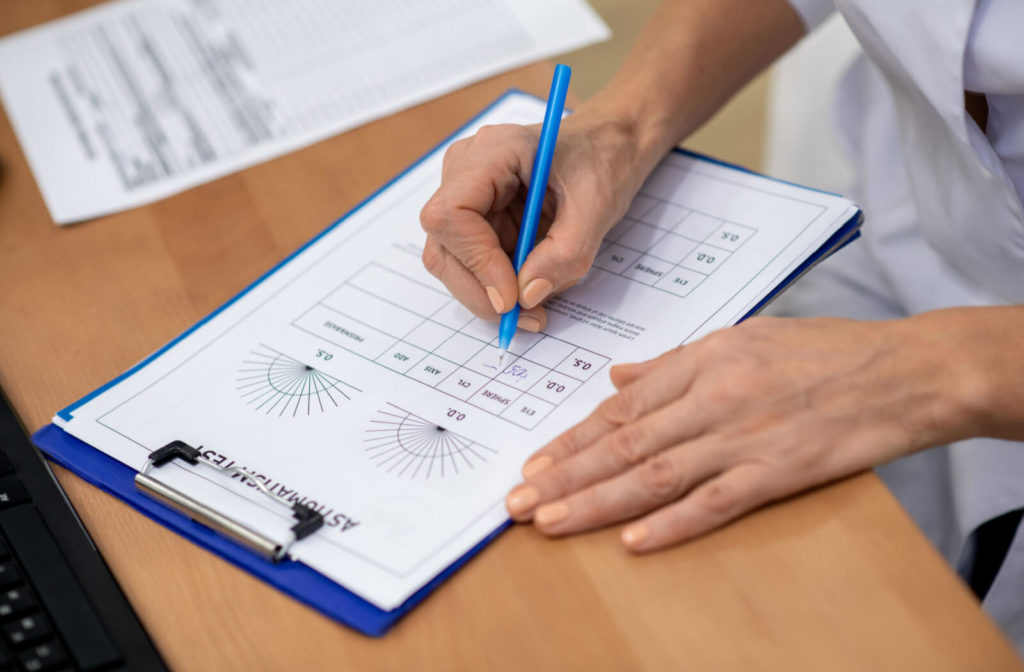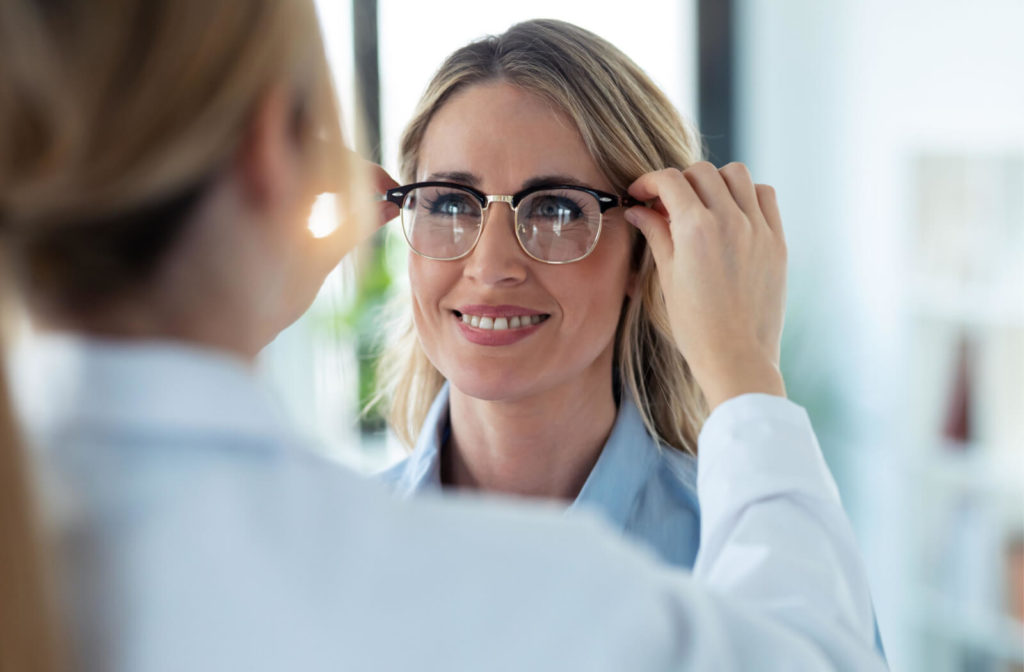Once you get your new eyeglass prescription after your comprehensive eye exam, you might be surprised when you look down at your paperwork and see an expiration date.
You have enough expiration dates to keep track of in your fridge; now you have to worry about your glasses too? Eyeglass prescriptions do expire, but it’s for some very good reasons.
An Up-to-Date Prescription Is for Your Vision Health
Vision correction prescriptions include expiration dates to guarantee that patients see their best! This is essential when purchasing new contact lenses or eyeglasses.
Regular eye exams are essential for everyone, even those who believe their eyesight hasn’t changed. People rarely notice slight vision deterioration and problems. So, a minor adjustment to your prescription could be needed at your next eye exam to provide you with the clearest vision.
Eye strain, headaches, and, in extreme situations, a serious accident can be brought on by eyeglasses worn with an outdated, inaccurate prescription.
When Will My Eyeglass Prescription Expire?
If you need corrective lenses, your eye doctor will write you a prescription. This prescription is valid for a set period, which varies per state, but is typically 1–2 years.
For those with eye health issues, a 1-year expiry date is usually suggested. For example:
- People with diabetes
- People with a family history of diabetes
- People with high prescriptions
- People who wear contact lenses
Age Affects Expiry Dates
Another reason your optometrist may assign a 1-year expiry date to your eyeglass prescription is because you are getting older, and your eyesight and eye health are changing more often.
Eye health and vision also change more rapidly in children, but annual eye exams are essential for children for a variety of reasons.
Children are less likely to notice changes in their vision, or they may perceive changes as “normal” because they don’t have any frame of reference as to what their vision should be.
A child with a vision impairment may experience learning or behavioral difficulties in school. These issues may arise because the child can’t see clearly. An optometrist is the best person to determine whether a child needs vision correction or an updated prescription.

Is Your Prescription Expired?
Even if your prescription hasn’t expired, it may be time to get a new prescription (and new glasses) if you notice that your vision has changed.
Keep in mind that gradual changes in your eyesight or vision may not be obvious. However, you can keep an eye out for a few common warning signs:
- Light Sensitivity
- Headaches
- Squinting
- Eyestrain
- Trouble focusing
- Double vision
Can You Get New Glasses with an Old Prescription?
If you accidentally damage your glasses, you won’t be able to get a new pair with an expired prescription, even if you feel your vision hasn’t changed.
It’s illegal for anyone to sell you glasses if you don’t have a valid prescription, so you should never try to buy replacement glasses if your prescription has expired. Expired prescriptions will be rejected by reputable eyewear websites and retailers.
Plus, if a retailer is willing to sell you eyeglasses based on your expired prescription, you should probably avoid them anyway.
Can You Use Your Eyeglass Prescription to Get Contacts?
Because contact lens prescriptions differ from eyeglass prescriptions, you can’t use your glasses prescription to purchase contact lenses. Contact lenses sit directly on your eyes, whereas eyeglass lenses rest a short distance in front of them, requiring very different measurements to correct your vision.
Regular Eye Exams Are Good for You Anyways
If we still haven’t convinced you that you shouldn’t keep wearing your expired prescription, maybe this will help. Comprehensive eye exams can reveal more about your health than just worsening vision.
Diabetes, lupus and autoimmune diseases, and certain types of cancer can all be detected in some patients through an eye exam. Regular exams will increase your chances of catching issues early, improving treatment outcomes for many diseases.
What Happens During an Eye Exam?
Thankfully, eye exams are generally quick, simple, and easy experiences. Your optometrist will run a series of noninvasive tests to assess the health of your eyes and the clarity of your vision.
First, they will ask about your family health history to help them determine if there’s a history of eye diseases they should watch for. Your optometrist will likely also perform tests like:
- A preliminary evaluation of your vision and eye health, including color vision, depth perception, peripheral vision, and pupil check.
- A refraction test to identify the presence of astigmatism, nearsightedness, or farsightedness.
- An assessment of your eye focusing, eye teaming, and eye movement skills.
Routine eye exams also include comprehensive testing for eye diseases such as glaucoma, diabetic eye conditions, and cataracts. Noninvasive diagnostic tools are typically used to examine your internal and external eye structures.
Finally, if your optometrist determines that you need corrective lenses, they’ll test what power of lens you need using a piece of equipment covered in dials, switches, and lenses called a phoropter. This instrument is probably the first thing that comes to mind when you think of an eye exam.If you’re ready to update your prescription with an eye exam, book an appointment today with Dr. Henslick Vision Center.




